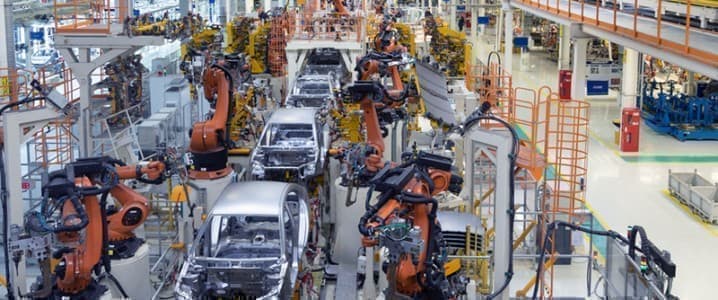Rising prices of critical electric vehicle (EV) metals are denting the profits of global automakers, just as a growing number of legacy carmakers are investing more in zero-emission vehicles.
The rally in lithium and copper prices—key battery metals—comes at a time when the global auto industry faces increased supply chain pricing pressure from the chip shortage and higher prices of steel and other input materials.
The rally in the prices of raw materials highlights the challenges the industry, and the world, face in accelerating the production and sales of EVs to fight the worst effects of climate change.
The higher prices of raw materials, including of the key battery metals, is set to cost the six largest automakers in Japan as much as US$9 billion (or 1 trillion Japanese yen) this fiscal year, Nikkei Asia reports, citing company statements and estimates from Goldman Sachs Japan. This cost headache represents 30 percent of the total profit forecasts of the six biggest Japanese carmakers.
"Raw material inflation is not going to be something transitory," Nikkei quoted Kohei Takeuchi, chief financial officer at Honda Motor, as saying.
The issue with higher costs is not unique to Japanese carmakers. U.S. car manufacturing giants also feel the headwinds in the supply chain.
GM's chief financial officer Paul Jacobson said at the Deutsche Bank's Global Auto Industry Conference in June that the U.S. giant expects "$2 billion to $3 billion of headwinds in the second half of the year."
"But there are some fundamental pressures in the second half that I think are unique versus the run rate that we've seen in the first half that starts probably with commodity inflation," Jacobson added.
"But other than that, we're looking for what hopefully is going to be pretty robust performance and starting to maybe put this chip issue behind us as we get into 2022," the executive said.
Also in June, GM announced it would raise its EV and AV investments from 2020 through 2025 to $35 billion, which would be a 75-percent increase from its initial commitment announced prior to the pandemic.
"GM is targeting annual global EV sales of more than 1 million by 2025, and we are increasing our investment to scale faster because we see momentum building in the United States for electrification, along with customer demand for our product portfolio," said GM Chair and CEO Mary Barra.
Earlier this month, GM formed a strategic investment and commercial collaboration with Controlled Thermal Resources to secure local and low-cost lithium.
"By securing and localizing the lithium supply chain in the U.S., we're helping ensure our ability to make powerful, affordable, high mileage EVs while also helping to mitigate environmental impact and bring more low-cost lithium to the market as a whole," said Doug Parks, GM executive vice president, Global Product Development, Purchasing and Supply Chain.
Lithium demand for EVs will only grow in the coming years, analysts say.
Surging demand this year has already pushed lithium prices to twice what it was at the start of 2021. The price of battery-grade lithium carbonate in China has jumped by 103.8 percent since January 1, according to Simon Moores, managing director at Benchmark Mineral Intelligence.
Andrew Miller, product director at Benchmark Mineral Intelligence, says that the early-2021 volatility in battery raw material prices has eased, but more turbulence could be expected in the fourth quarter of this year as 2022 orders materialize.
"Hearing of some big increases in #lithium," Miller said last week.
Surging prices of lithium and other critical minerals could undermine and even reverse the decade-long drop in battery costs. Automakers face supply chain pressures in producing affordable EVs that would compete with conventional gas-fueled cars.
By Tsvetana Paraskova for Oilprice.com
More Top Reads From Oilprice.com:
- Top Oilfield Service Providers See Multi-Year Recovery Ahead
- Can Iran Avoid A Major National Uprising?
- U.S. Shale Sees Light At The End Of The Tunnel

















